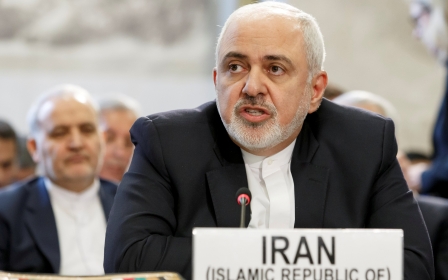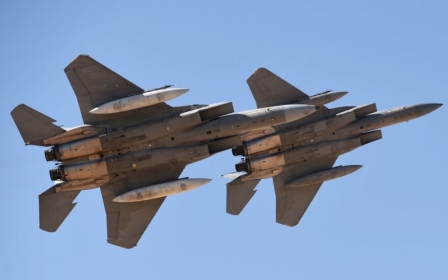US to send troops to Saudi Arabia following oil refinery attacks

The deployment of US troops to bolster Saudi Arabia's air and missile defences has been approved by US President Donald Trump after the largest-ever attack on the kingdom's oil facilities, which Washington has blamed on Iran.
The mission will be primarily defensive and involve a moderate number of troops - not numbering thousands - the Pentagon said. It also detailed plans to expedite delivery of military equipment to both Saudi Arabia and the United Arab Emirates.
Reuters has previously reported that the Pentagon was considering sending anti-missile batteries, drones and more fighter jets. The United States is also considering keeping an aircraft carrier in the region indefinitely.
"In response to the kingdom's request, the president has approved the deployment of US forces, which will be defensive in nature and primarily focused on air and missile defence," US Defense Secretary Mark Esper said at a news briefing.
"We will also work to accelerate the delivery of military equipment to the kingdom of Saudi Arabia and the UAE to enhance their ability to defend themselves."
Stay informed with MEE's newsletters
Sign up to get the latest alerts, insights and analysis, starting with Turkey Unpacked
The Pentagon's late Friday announcement appeared to close the door to any imminent decision to wage retaliatory strikes against Iran following the attack, which rattled global markets and exposed major gaps in Saudi Arabia's air defences.
Saudi Arabia said on Saturday that it expects an investigation will prove Iran was behind the attacks and, if so, it will take "appropriate measures".
"The kingdom calls upon the international community to assume its responsibility in condemning those that stand behind this act, and to take a firm and clear position against this reckless behaviour that threatens the global economy," said Minister of State for Foreign Affairs Adel al-Jubeir.
Trump said earlier on Friday that he believed his military restraint so far showed "strength," as he instead imposed another round of economic sanctions on Tehran.
"Because the easiest thing I could do, 'Okay, go ahead. Knock out 15 different major things in Iran.' ... But I’m not looking to do that if I can," Trump told reporters at the White House.
But the deployment could further aggravate Iran, which has responded to previous US troop deployments this year with apprehension. It denies responsibility for the attack on Saudi Arabia.
Yemen's Iran-aligned Houthi movement, which has been battling a Saudi-led military coalition that includes the UAE, has claimed responsibility for the 14 September strikes.
Riyadh has rejected that claim, saying the attacks came from a different direction.
"We are certain that the launch did not come from Yemen, it came from the north. The investigations will prove that," said Jubeir.
The head of Saudi Arabia's oil company Saudi Aramco said it is "stronger than ever" after the attack.
The attacks on the Abqaiq and Khurais plants, some of the kingdom's biggest, caused raging fires and significant damage that halved the crude output of the world's top oil exporter, by shutting down 5.7 million barrels per day of production.
"The fires that were intended to destroy Saudi Aramco had an unintended consequence: they galvanized 70,000 of us around a mission to rebound quickly and confidently, and Saudi Aramco has come out of this incident stronger than ever," the company's chief executive Amin Nasser said in an internal message, on the occasion of the Saudi national day, to be celebrated on 23 September.
Middle East Eye delivers independent and unrivalled coverage and analysis of the Middle East, North Africa and beyond. To learn more about republishing this content and the associated fees, please fill out this form. More about MEE can be found here.




